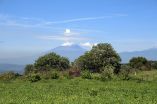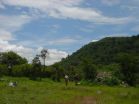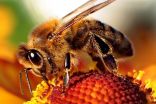Study underscores complexity of geopolitics in the age of the Aztec empire
2015-03-25
(Press-News.org) New findings from an international team of archaeological researchers highlight the complexity of geopolitics in Aztec era Mesoamerica and illustrate how the relationships among ancient states extended beyond warfare and diplomacy to issues concerning trade and the flow of goods.
The work was done by researchers from North Carolina State University, the Centro de Investigación y de Estudios Avanzados del Instituto Politécnico Nacional-Unidad Mérida, El Colegio de Michoacán and Purdue University.
The researchers focused on an independent republic called Tlaxcallan in what is now central Mexico, about 75 miles east of modern Mexico City. Tlaxcallan was founded in the mid-13th century and, by 1500, was effectively surrounded by the Aztec Empire - but never lost its independence. In fact, Tlaxcallan supported Cortés and played a critical role in the Spanish Conquest of Mexico in the 16th century.
The new research focuses on where the people of Tlaxcallan obtained their obsidian in the century before the arrival of Cortés. Obsidian is a volcanic glass that was widely used in everything from household tools and weapons to jewelry and religious objects. But Tlaxcallan did not have a source of obsidian within its territory - so where did it come from?
"It turns out that Tlaxcallan relied on a source we hadn't expected, called El Paredón," says Dr. John Millhauser, an assistant professor of anthropology at NC State and lead author of a paper on the work. "Almost no one else was using El Paredón at the time, and it fell just outside the boundaries of the Aztec Empire. So, one question it raises is why the Aztecs - who were openly hostile to Tlaxcallan - didn't intervene."
One possible explanation is that the Aztecs didn't intervene because it would have been too much effort. "Obsidian was widely available and was an everyday good. It probably wasn't worth the time and expense to try to cut off Tlaxcallan's supply of obsidian from El Paredón because other sources were available," Millhauser says.
The finding drives home how complex international relations were during the Aztec Empire's reign.
"The fact that they got so much obsidian so close to the Aztec Empire makes me question the scope of conflict at the time," Millhauser says. "Tlaxcallan was able to access a source of household and military goods from a source that required it to go right up to the border of enemy territory."
At the same time, the research makes clear that there was an economic rift between Tlaxcallan and the Aztecs. Previous research shows that more than 90 percent of Aztec obsidian came from a source called Pachuca, further to the north. But the new research finds that only 14 percent of the obsidian at Tlaxcallan was from Pachuca - most of the rest came from El Paredón.
For this study, the researchers systematically collected artifacts from the surfaces of stone-walled terraces at the site of the pre-Columbian city of Tlaxcallan. A representative number of the artifacts were then analyzed using x-ray fluorescence. This information was compared with samples from known sources of obsidian in the region to determine where the obsidian artifacts came from.
"All of this drives home the fact that geopolitics mattered for the economies of ancient states," Millhauser says. "Political stances and political boundaries influenced everyday behavior, down to the flow of basic commodities like obsidian. The popular conception of the Aztec Empire as all powerful before the arrival of Cortés is exaggerated. The region was a politically and culturally complicated place."
INFORMATION:
The paper, "The Geopolitics of Obsidian Supply in Postclassic Tlaxcallan: A Portable X-Ray Fluorescence Study," was published online March 25 in the Journal of Archaeological Science. The paper was co-authored by Dr. Lane Fargher of the Centro de Investigación y de Estudios Avanzados del Instituto Politécnico Nacional-Unidad Mérida; Dr. Verenice Heredia Espinoza, of El Colegio de Michoacán; and Dr. Richard Blanton, of Purdue University.
The research was done with support from the Instituto Nacional de Antropología e Historia, the Elemental Analysis Facility of the Field Museum of Natural History, The Grainger Foundation, Purdue University, the Colegio de Michoacán, FAMSI, the National Geographical Society (under grant number 8008-06), and the National Science Foundation (under grant number BCS-0809643).
ELSE PRESS RELEASES FROM THIS DATE:
2015-03-25
DENVER, March 25, 2015 -- The sweet taste and smell of antifreeze tempts children and animals to drink the poisonous substance, resulting in thousands of accidental poisonings in the United States every year. But today researchers will describe a new, nontoxic product based on a common food additive that could address this health issue and help the environment at the same time.
The presentation will take place here at the 249th National Meeting & Exposition of the American Chemical Society (ACS), the world's largest scientific society. The meeting features nearly 11,000 ...
2015-03-25
DENVER, March 25, 2015 -- Water-borne algal blooms from farm fertilizer runoff can destroy aquatic life and clog rivers and lakes, but scientists will report today that they are working on a way to clean up these environmental scourges and turn them into useful products. The algae could serve as a feedstock for biofuels, and the feedstock leftovers could be recycled back into farm soil nutrients.
A multi-pronged nutrient bio-remediation system is the goal of a team of scientists who will present their research at the 249th National Meeting & Exposition of the American ...
2015-03-25
New research presented today at the 2015 Annual Meeting of the American Academy of Orthopaedic Surgeons (AAOS) identifies nicotine dependence, obesity, alcohol abuse and depressive disorders as risk factors for low back pain, a common condition causing disability, missed work, high medical costs and diminished life quality.
According to the U.S. Centers for Disease Control and Prevention's (CDC) 2012 National Health Survey, nearly one-third of U.S. adults reported that they had suffered from low back pain during the previous three months. For many adults, low back pain ...
2015-03-25
A new study presented today at the 2015 Annual Meeting of the American Academy of Orthopaedic Surgeons (AAOS) found that 53 percent of the parents/caregivers of youth baseball pitchers are unaware of safe pitching practices designed to prevent overuse injuries--common tears or damage, most often to the elbow (ulnar collateral ligament) or shoulder--which can cause pain, lost play time and, if not treated appropriately, arthritis, deformity and disability.
Between 2 and 8 percent of youth pitchers will suffer an overuse injury from throwing too hard, too often, too young, ...
2015-03-25
Asked to name one way people have changed the environment, many people would probably say "global warming." But that's really just the start of it.
People burn fossil fuels, but they also mine and manufacture. It's who we are: Homo fabricus: man the maker. And as a side effect of our ingenuity and craft we have taken many metals originally buried safely in Earth's depths and strewn them about the surface.
Does it matter? Yehuda Ben-Shahar and Eirik Søvik, biologists at Washington University in St. Louis, together with colleagues from Andrew Barron's lab at Macquarie ...
2015-03-25
ADDIS ABABA, ETHIOPIA (25 MARCH 2015)--Amidst fears that global warming could zap a vital source of protein that has sustained humans for centuries, bean breeders with the CGIAR global agriculture research partnership announced today the discovery of 30 new types, or lines as plant breeders refer to them, of "heat-beater" beans that could keep production from crashing in large swaths of bean-dependent Latin America and Africa.
"This discovery could be a big boon for bean production because we are facing a dire situation where, by 2050, global warming could reduce areas ...
2015-03-25
A survey of almost 400,000 British residents has highlighted significant differences in personalities between regions. Amongst its finding, it shows Scots to be amongst the friendliest and most co-operative residents, Londoners the most open and Welsh people the least emotionally stable.
Researchers from the University of Cambridge used the data to analyse a sample of just under 400,000 people from England, Wales or Scotland (Northern Ireland was excluded as sample sizes were too small), around two-thirds of whom were female. The results of their study are published today ...
2015-03-25
Air pollution is linked to a higher risk of stroke, particularly in developing countries, finds a study published in The BMJ today. In a second article, new research also shows that air pollution is associated with anxiety.
Stroke is a leading cause of death and kills around 5 million people each year worldwide. Common risk factors include obesity, smoking and high blood pressure. But the effect of the environment, such as, air pollution is uncertain because evidence is lacking.
In a systematic review and meta analysis, a team of researchers from Edinburgh University ...
2015-03-25
The sale of human breast milk on the internet poses serious risks to infant health and needs urgent regulation, argue experts in The BMJ today.
The nutritional benefits of breast milk for babies are widely documented, but many new mothers find it difficult or are unable to breastfeed. In addition to social pressure, this pushes some mothers to purchase human breast milk on the internet - a market that has been growing rapidly.
Despite appearing as healthy and beneficial products, many new mothers and even some healthcare workers are not aware that this market is "dangerous" ...
2015-03-25
More research is needed to identify how athletes sustain brain injury from American football, and also to develop strategies to protect them, write experts in The BMJ today.
Chronic traumatic encephalopathy (CTE) is a progressive neurodegenerative syndrome that can affect athletes. It is thought to result from concussion and brain injury following repeated blows to the head.
But the topic of brain damage in football is controversial. The National Football League, for example, does not acknowledge any association between football and brain injury.
CTE symptoms include ...
LAST 30 PRESS RELEASES:
[Press-News.org] Study underscores complexity of geopolitics in the age of the Aztec empire




